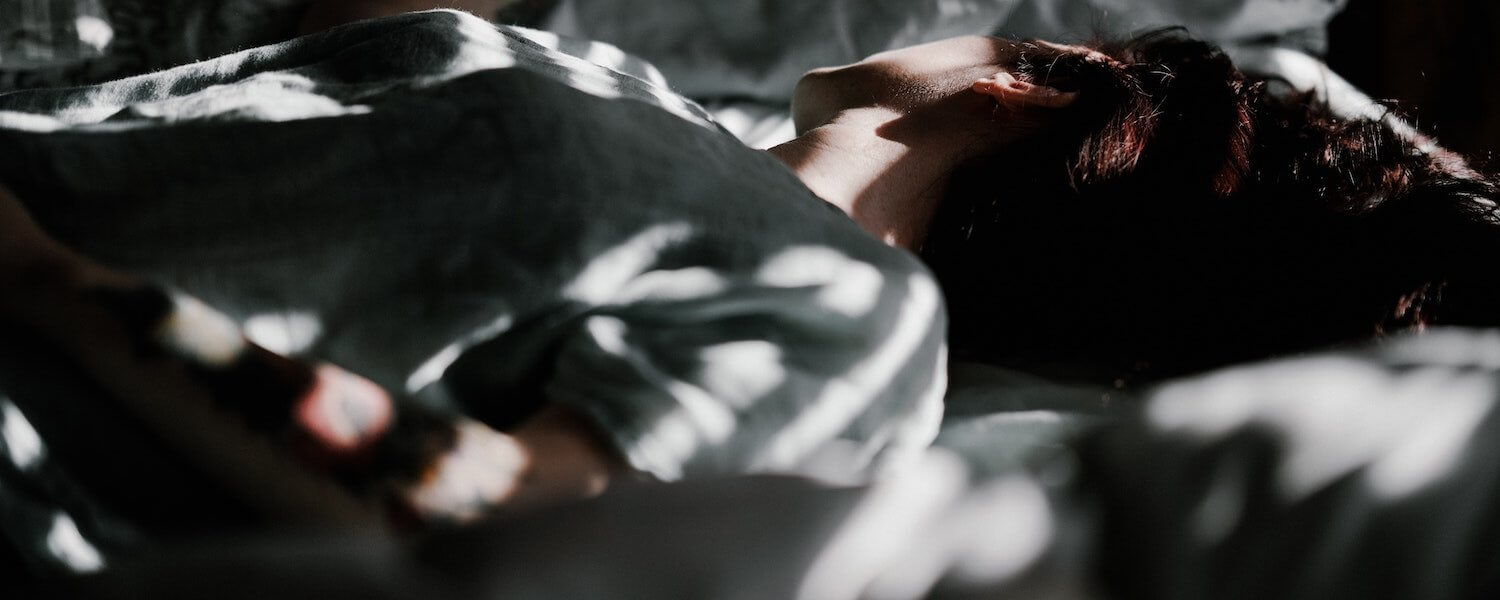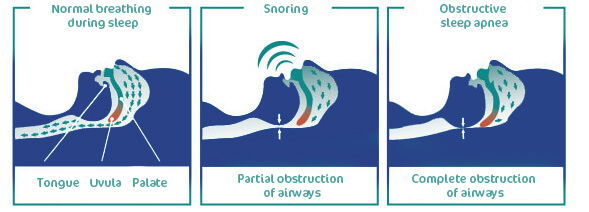What is sleep apnea?

Despite being a relatively serious condition, not only does sleep apnea often go undiagnosed, but people also know surprisingly little about it.
What is sleep apnea?
- Sleep apnea is when you regularly stop breathing for 10 seconds or more during sleep.
- A person is diagnosed as having sleep apnea when they have more than 5 breathing events per hour of sleep.
When you sleep, your breathing slows down compared to your breathing rate during the day, though it remains the same automatic process. While we breathe automatically during sleep, our breathing can be compromised or even blocked. Let’s have a closer look at why this is.
1 breathing event = 1 awakening
Sleep apnea has a negative impact on sleep quality. Each breathing event causes a person with sleep apnea to wake for a few seconds. Waking up allows the person’s muscular tension to return to normal so that they can breathe. These frequent interruptions mean that the person’s sleep is fragmented and their sleep phases are incomplete. People generally remain unaware of these micro awakenings and quickly fall back asleep. Since they’re not awake long enough to notice, they often don’t report having poor sleep. In fact, studies show that between between 4% and 14% men and between 2% and 5% of women in the US suffer from sleep apnea. Despite this, very few people seek treatment for this condition as it often goes undiagnosed. Yet, once diagnosed, there are effective treatments available.
Two types of sleep apnea
Sleep apnea is divided into two quite different conditions. Their causes differ though the symptoms remain similar.
- Obstructive sleep apnea accounts for 90% of cases of sleep apnea
- The remaining 10% of cases are central sleep apnea, caused by a failure of brain signals to prompt inhalation of air.
In this series of sleep apnea articles, we’ll be focusing on obstructive sleep apnea as it affects a far larger number of people than central sleep apnea.
What causes sleep apnea?
Obstructive sleep apnea is caused by upper airway obstruction, particularly at the pharynx. The pharynx is the part of the throat that connects the nasal cavity and the mouth. Made of mucosa, it is not a rigid structure. The movement of the pharynx walls plays an important role in breathing. When the walls move closer together, airflow in the throat decreases. As the pharynx walls move toward each other, they vibrate, which is what causes snoring. A significant reduction in airflow is known as hypopnea. When this occurs, the person tries harder to breathe. This sets off a compression in the lungs, which then closes the pharynx by bringing its walls together. This is obstructive sleep apnea in a nutshell.

Obstructive sleep apnea has a number of causes. All treatments work in the same way, by seeking to open or stabilise upper airways during sleep. The best known treatments are continuous positive airway pressure (CPAP) via machine or orthotics. There are other treatments available that can be recommended depending on how severe the case of sleep apnea.
Main takeaways
What is sleep apnea?
Sleep apnea is a disorder characterized by interruptions in breathing during sleep.
Are there different types of sleep apnea?
There are two types of sleep apnea; obstructive, accounting for 90% of cases, and central., which accounts for the remaining 10%.
What causes sleep apnea?
Obstructive sleep apnea is caused by upper airway obstruction. Central sleep apnea is caused by failure of brain signals to prompt inhalation of air.
Discover your sleeper profile with this sleep test
Start



